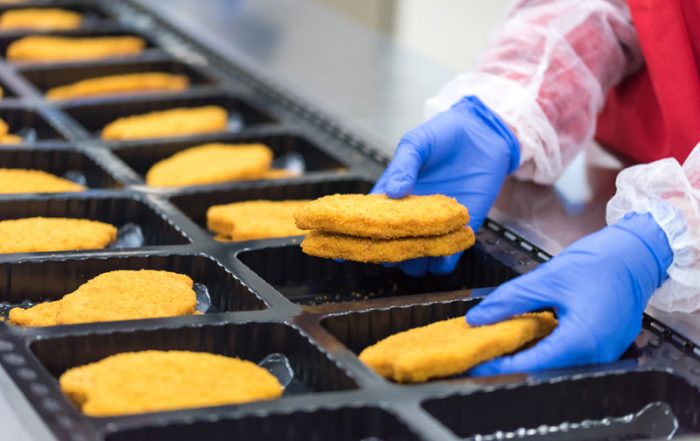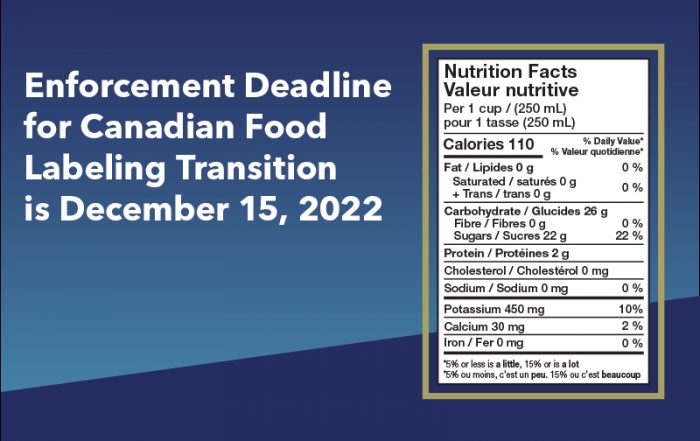Traceability has become more important than ever as food product supply chains become increasingly complex. Traceability records not only provide supply chain visibility and risk reduction, it also helps companies to support their quality control systems from production, processing to distribution.
Having proper traceability records is a CFIA requirement under Safe Food for Canadians Regulations (SFCR). They directly impact the effectiveness and timeliness of food safety investigations and to remove products quickly from the market, as well provides a pathway to trace the problem back to the root and prevent future issues.
As products move from one entity to another, each participant must be able to trace their products to other participants immediately before and after them along the value chain. Other words, one step forward to who, where and when it is going and one step back to identify the source and when.
Having a food traceability program goes hand in hand with having Hazard Analysis of Critical Control Points (HACCP) and Preventive Control Plans (PCP) so it is essential for food manufacturers, distributors, importers, and exporters familiarize themselves with the rule and requirements and stay current and compliant.
The Cost of Recalls
A traceability program has far reaching implications especially when it comes to recalls management, and importation and exportation of products.
Recalls fall at the feet of the customer-facing brand, regardless of where the problem occurred along the supply chain. Companies must be able to without hesitation, pinpoint affected product lot numbers and locations to remove them from store shelves. As well, be able to identify and trace the source of problem ingredients in the supply chain.
The true cost of recalls can be steep, especially so if fatalities are involved. Damage to brand and reputation which can take a long time to recover from if at all, logistics required to remove products from shelves, investigations to identify problem source, legal and litigation, compliance penalties and future lost sales and so on all add up and take a toll. However, in the end, it is the consumer that bears the brunt of health-related consequences.
Import and Export
Traceability is about supply chain visibility and transparency. It provides tracking and tracing evidence that includes origin, location, agricultural and manufacturing practices, and history of the product. In the event of a contamination, food companies can investigate and pinpoint the source of the problem ingredient from supplier whether based in Canada or abroad.
For distribution across Canadian provincial or territorial boundaries, traceability documents are required if you manufacture, process, treat, preserve, grade, store, package, or label food to be exported or distributed across.
For international exporters, Canadian food safety standards under SFCR are consistent with international standards and provides evidence to overseas importers that they meet food safety system requirements recognized by CFIA. Traceability documents are also required when products are crossing international borders and a failure to provide documentation will result in products getting held up.
For Canadian companies currently exporting to the U.S., it is important to know that US FDA has put forth an effort to bring end-to-end traceability in their food supply system as part of their New Era of Smarter Food Safety initiative. Canada is ahead on this one – as Canadian food exporters will already have this in place by the time US fully implements Food Traceability requirements. A critical step was announced on September 21 by the U.S. FDA to bring about farm-to-table traceability as part of the longer-term initiative.
Building your Traceability Plan
The food and beverage industry faces a host of challenges when it comes to food traceability. Where companies have HACCP and PCP to mitigate risk within a facility, however having little, ineffective to no traceability plans and transparency plans in place to manage or prevent product recall. Often, the lack of infrastructure we have found is usually the main reason especially for small companies.
Having a solid traceability program in place is the first step. Managing the program and meeting your traceability goals requires constant vigilance demonstrating that your ingredients are meeting sourcing standards and the promise of marketing claims such as organic, non-GMO and allergen declarations.
A traceability program is not a one-size-fits-all activity. For example, highly complex products for instance with ethical attributes such organic or fair-trade are much more complex to manage requiring more resources and systems in the supply chains than compared with mass market products.
A well-designed program takes into consideration your existing business practices, specific to your operation and is designed for the way you work. A traceability SOP outlines your traceability program in detail which itself is a provision of the above-mentioned SFCR Traceability Requirements.
If you currently have traceability program in place and unsure as to it’s effectiveness, a third party-led gap analysis on your current inventory management and labelling systems against SFCR traceability requirements may potentially help uncover areas for improvement. An effective gap analysis takes your budgets into consideration, the category of food commodity and the differences in traceability requirements between domestic food manufacturers, importers, and exporters.
A traceability plan is not a box to be checked and filed away but rather an initiative that needs to be put into practice daily. This is where staff training comes in. Training provides the knowledge on understanding the importance of traceability protocols, how they work, and how to use them across the various roles in the organization such as shipping, receiving, operations, manufacturing, and warehousing.
Training is further supported by Recall Simulation Tests by putting into practice to test the effectiveness of your traceability and recall procedures in addition to your training.
We at MCS Associates work closely with food and beverage companies to develop and assess traceability and food safety programs to ensure compliance with regulatory guidelines.








